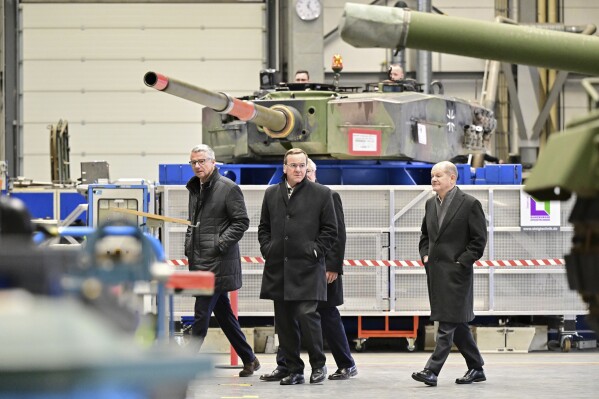In a rather unconventional move, the leaders of Germany and Denmark recently participated in a groundbreaking ceremony for a new ammunition factory, highlighting Europe’s increasing focus on bolstering its weapons production amidst Russia’s ongoing conflict in Ukraine.
The new plant, being constructed by defense company Rheinmetall at its existing site in Unterluess, northern Germany, is expected to produce approximately 200,000 artillery shells per year, along with explosives and potentially other components such as warheads. With a price tag of around 300 million euros ($324 million), Rheinmetall is footing the bill for this ambitious project.
Rheinmetall has stated that the primary purpose of the production at this site will be to meet the needs of Germany’s military, the Bundeswehr. The company is eager to kickstart production as soon as possible, with construction expected to wrap up in about a year. German Chancellor Olaf Scholz, accompanied by his defense minister and Danish Prime Minister Mette Frederiksen at the ceremony, praised Rheinmetall for “laying the foundation for supplying the Bundeswehr and our partners in Europe with artillery ammunition independently and above all durably.” This move is seen as particularly crucial in light of Ukraine’s urgent ammunition requirements, as reported by German news agency dpa.
Scholz emphasized, “We have managed so far by delivering a great deal from our stocks,” acknowledging the growing difficulty in doing so. He stressed the importance of ramping up global production to meet increasing demands.
Despite the EU’s plan to produce 1 million artillery rounds for Ukraine, only about a third of the target has been met. Russia’s formidable arms industry dwarfs that of Ukraine, which has relied heavily on Western assistance to match Moscow’s military capabilities. The conflict in Ukraine has also spurred Germany to reassess its own military readiness, with Scholz announcing a significant increase in military spending in the wake of the Russian invasion.
Germany aims to allocate 2% of its gross domestic product to military spending this year, a target set by NATO allies a decade ago but one that Germany has consistently fallen short of until now. Additionally, Germany has become Ukraine’s second-largest military supplier after the United States, signaling a significant shift in its defense policy.
(Source: Euro News| Associated Press)









